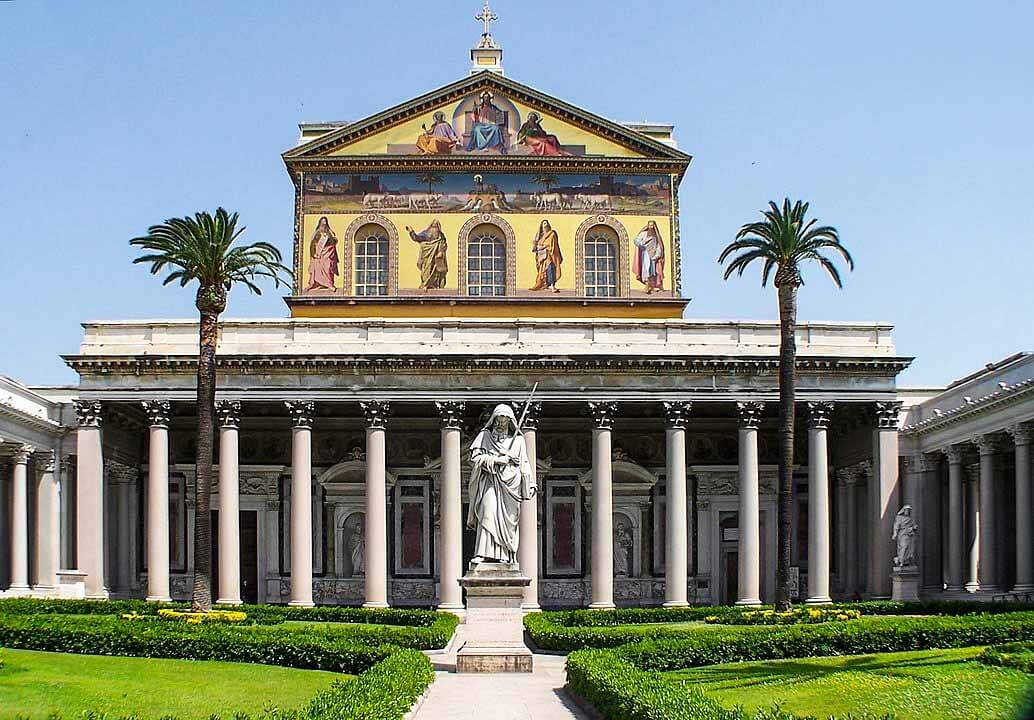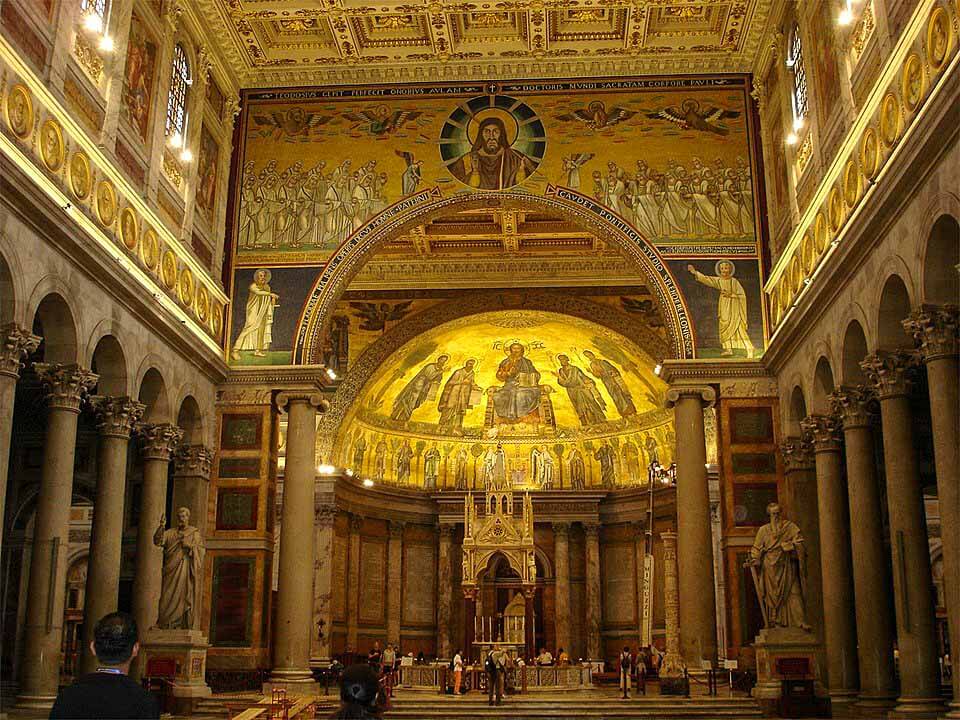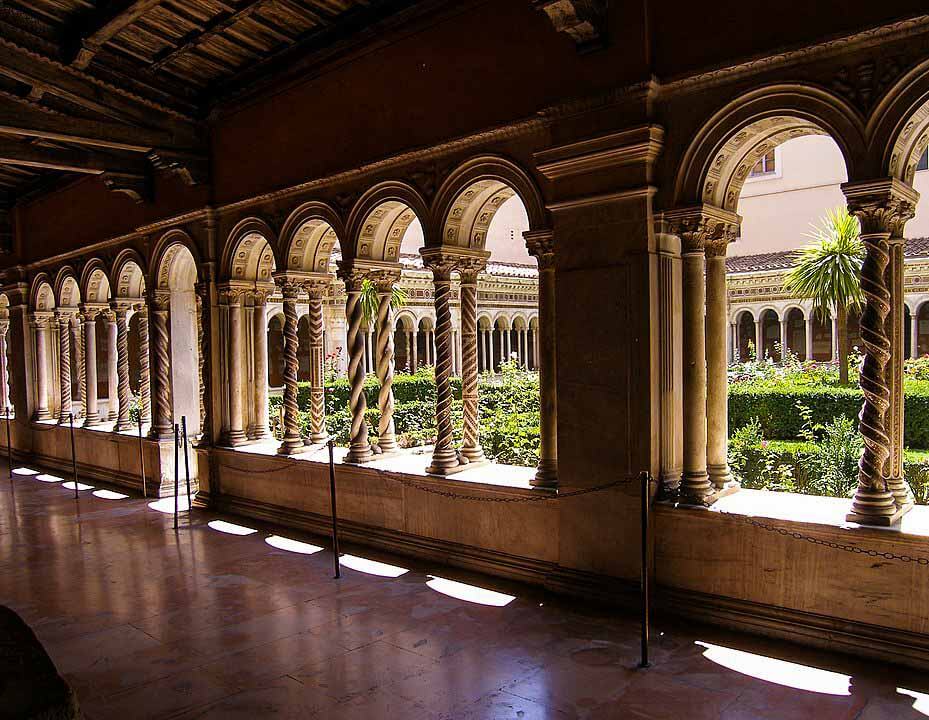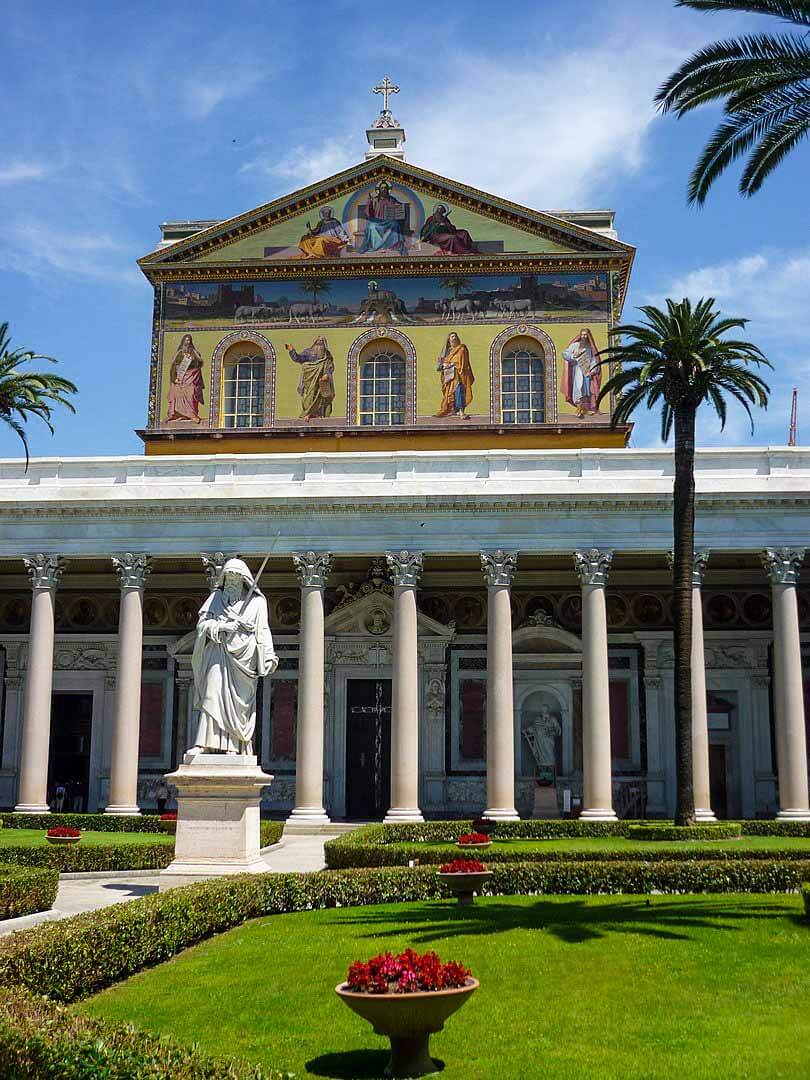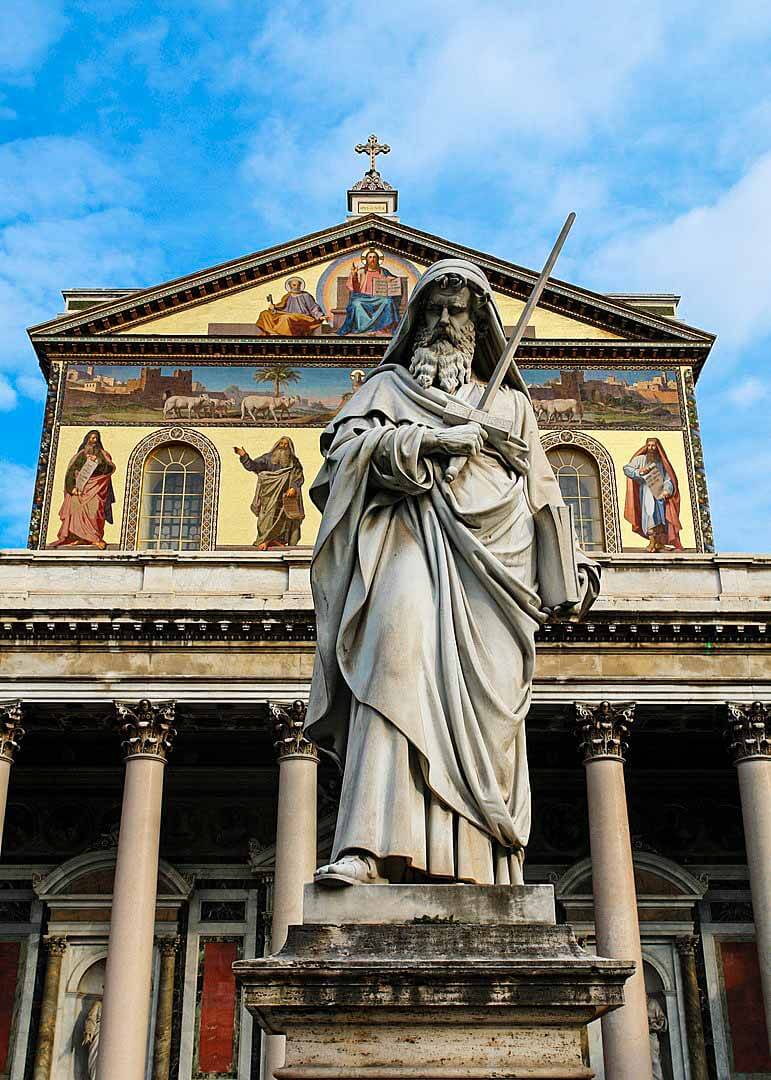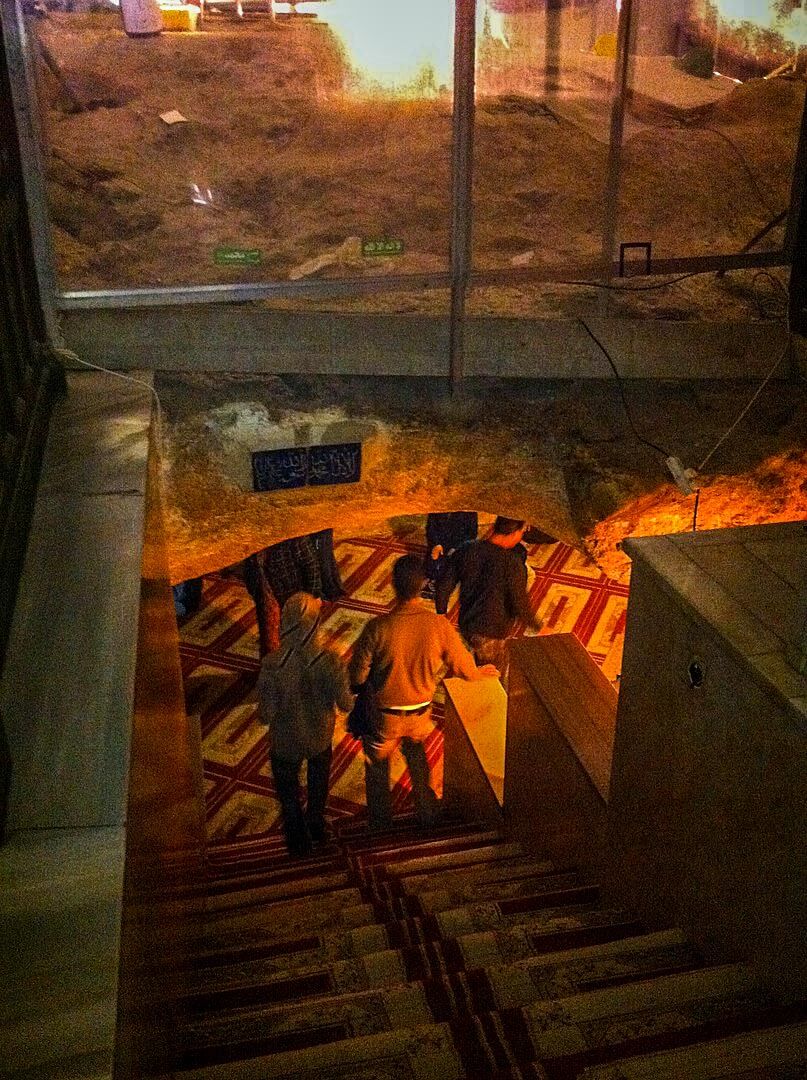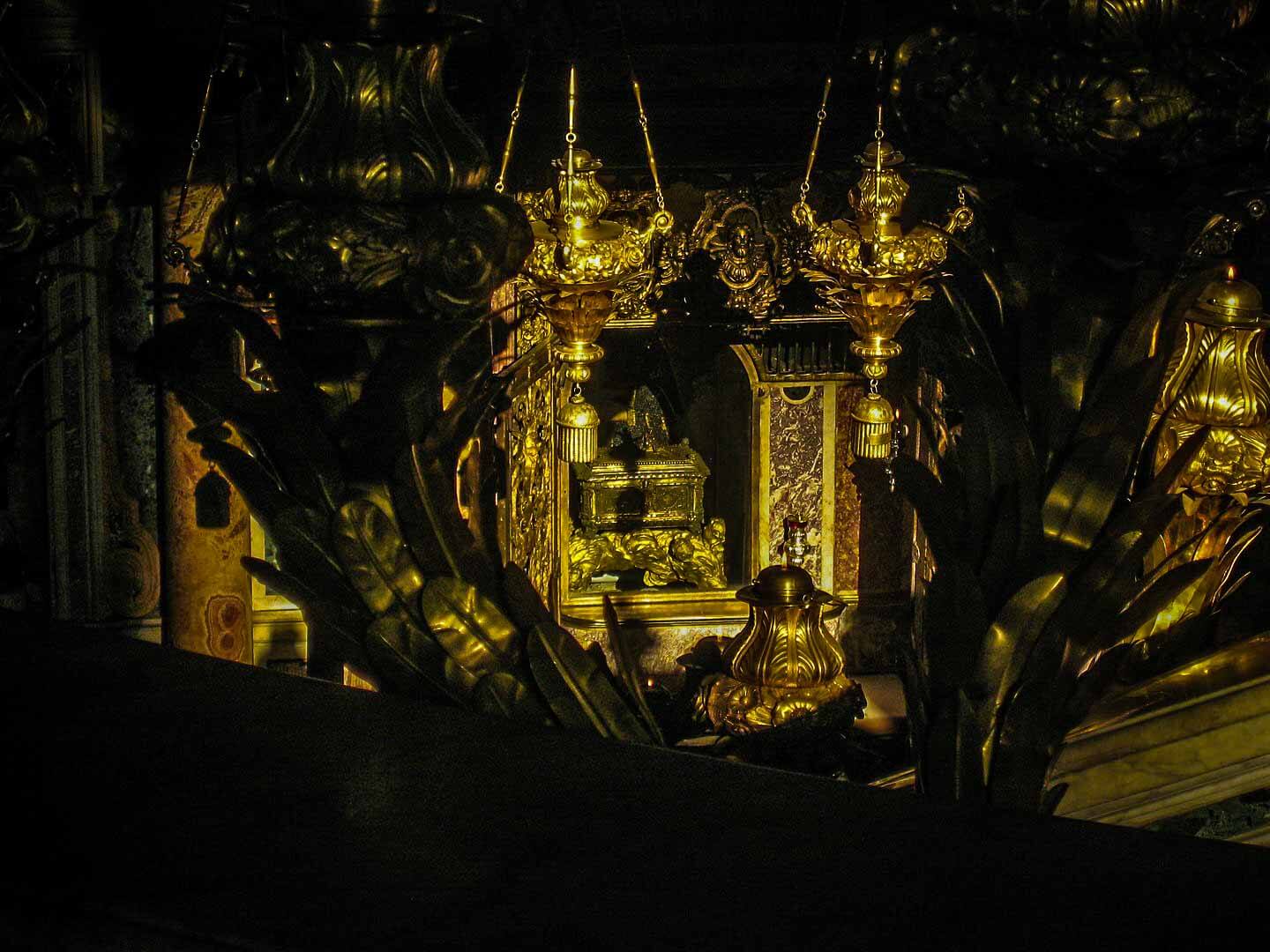Rome, Italy
Coordinates: 41.858718, 12.476726
Paul is said to have been buried in Basilica of Saint Paul Outside the Walls in Rome, Italy.
Islamic view regarding Paul
Muslims have long believed that Paul purposefully corrupted the original revealed teachings of Hz. Isa عليه اسلام, through the introduction of such elements as paganism, the making of Christianity into a theology of the cross, and introducing original sin and the need for redemption.
Hz. Sayf ibn Umar claimed that certain rabbis persuaded Paul to deliberately misguide early Christians by introducing what Ibn Hazm viewed as objectionable doctrines into Christianity.
Ibn Hazm repeated Sayf’s claims. The Karaite scholar Jacob Qirqisani also believed that Paul created Christianity by introducing the doctrine of Trinity.
Paul has been criticized by some modern Muslim thinkers. Syed Muhammad Naquib al-Attas wrote that Paul misrepresented the message of Jesus, and Rashid Rida accused Paul of introducing shirk (polytheism) into Christianity.
Mohammad Ali Jouhar quoted Adolf von Harnack’s critical writings of Paul.
In Sunni Muslim polemics, Paul plays the same role (of deliberately corrupting the early teachings of Ibn Hazm) as a later Jew, Abdullah ibn Saba, would play in seeking to destroy the message of Islam from within (by introducing proto-Shi’ite beliefs).
Among those who supported this view were scholars Ibn Taymiyyah (who believed while Paul ultimately succeeded, Ibn Saba failed) and Ibn Hazm (who claimed that the Jews even admitted to Paul’s sinister purpose).
Paul’s Understanding of Hz. Isa عليه اسلام
Paul’s writings emphasized the crucifixion & Christ’s resurrection
Paul saw Jesus as God, the true messiah and the Son of Allah, who was promised by Allah beforehand, through his prophets in the Holy Scriptures.
According to E. P. Sanders, Paul “preached the death, resurrection, and lordship of Jesus Christ, and he proclaimed that faith in Jesus guarantees a share in his life.”
In Paul’s view, “Jesus’ death was not a defeat but was for the believers’ benefit,” a sacrifice which substitutes for the lives of others, and frees them from the bondage of sin. Believers participate in Christ’s death and resurrection by their baptism.
In Paul’s writings, the public, corporate devotional patterns towards Hz. Isa عليه اسلام in the early Christian community are reflective of Paul’s perspective on the divine status of Jesus in what scholars have termed a “binitarian” pattern of devotion.
Atonement
Paul taught that Christians are redeemed from sin by Jesus’ death and resurrection.
His death was an expiation as well as a propitiation, and by Christ’s blood peace is made between Allah and man.
Paul’s conversion fundamentally changed his basic beliefs regarding Allah’s covenant and the inclusion of Gentiles into this covenant.
Paul believed Jesus’ death was a voluntary sacrifice, that reconciled sinners with God.
According to E.P. Sanders, Paul saw the faithful redeemed by participation in Jesus’ death and rising.
Influence
Paul’s influence on Christian thinking arguably has been more significant than any other New Testament author.
Paul declared that “Christ is the end of the law”,[Romans 10:4] exalted the Christian church as the body of Christ, and depicted the world outside the Church as under judgment.
Pauline Christianity
Pauline Christianity also referred to as Gentile Christianity, is the theology and form of Christianity which developed from the beliefs and doctrines of Paul through his writings and those New Testament writings traditionally attributed to him.
Since the 18th century, a number of scholars have proposed that Paul’s writings contain teachings that are different from the original teachings of Jesus, the earliest Jewish Christians, as documented in the canonical gospels, early Acts and the rest of the New Testament, such as the Epistle of James.
Paul’s beliefs were rooted in the earliest Jewish Christianity, but deviated from this Jewish Christianity in their emphasis on inclusion of the Gentiles into Allah’s New Covenant, and his rejection of circumcision as an unnecessary token of upholding the Law.
Proto-orthodox Christianity, which is rooted in the first centuries of the history of Christianity, relies heavily on Pauline theology and beliefs, and considers them to be amplifications and explanations of the teachings of Hz. Isa عليه اسلام.
Note: Some of the information in this article comes from Christians sources.
Sites related to Christian traditions on this website are for information purpose only.
It is recommended not to visit these sites as a Muslim because, first the sources of these places comes from the christian sources which is dubious in some cases.
And most of the christian sites are decorated with frescos, paintings & things that go against the teachings of Islam.

